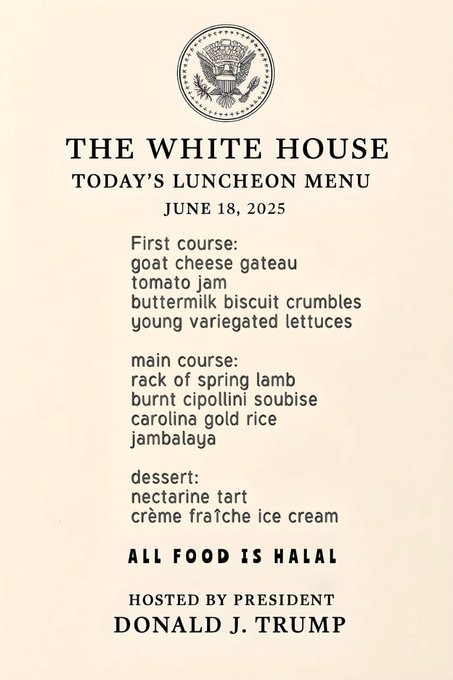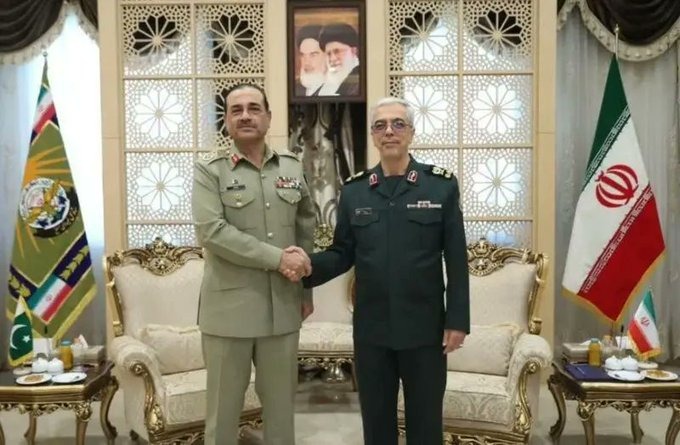In Islamabad, the role of Pakistan in the intensifying US-Iran conflict has been questioned after President Donald Trump’s June 21, 2025, attacks on Iran’s nuclear facilities at Fordow, Natanz, and Esfahan.
With Iran sharing 900 km border with Pakistan, its strategic location makes the country a possible actor in this conflict. The White House lunch at the President’s residence between Trump and Pakistan Army Chief Field Marshal Asim Munir on June 19 has heightened speculation over Pakistan’s involvement.
Public comments between the two leaders place a priority on de-escalation, with Munir showing “deep appreciation” for Trump’s efforts towards a ceasefire between India and Pakistan, according to recent reports.
However, Pakistan’s position is still unclear, weighing its traditional friendship with Iran on the one hand against increasing US pressure, particularly during Iran’s missile counterattack that injured 16 in Israel, according to NBC News.
Bombshell: Divide in Allegiance
Pakistan’s position in the war is a balancing act, falling short of being in perfect alignment with either the US or Iran. Formally, Pakistan has denounced Israel’s attacks against Iran as acts of sovereignty, according to its Foreign Ministry, echoing unity with Tehran based on the two sharing Muslim identity and having a large Shia community.
Yet, Trump’s remarks over the Munir lunch—”They know Iran very well, better than most, and they are not happy”—imply Pakistan is likely to align with the US, considering its history as an American ally, particularly post-9/11.
Pakistan’s shutting down on June 15 of five border crossings to Iran and its abstaining from a recent IAEA vote condemning Iran suggest caution, not commitment. This duplicity is a sign that Pakistan is hedging its bets, staying out of direct conflict as it dances around US and Iranian interests.

Bombshell Secrets Behind the Lunch
The over two-hour-long June 19 Munir-Trump lunch has fueled speculation regarding Pakistan’s role in the war. Trump lauded Munir for preventing war with India but reportedly explored the Iran-Israel crisis in talks, with both supporting peace, according to the Pakistan Army.
Experts speculate that the US could be seeking out Pakistan’s air bases and airspace for future Iranian strikes, as it shares a proximity and has historically used it as a launchpad, such as for the war in Afghanistan.
Munir’s encounter with Iran’s recently deceased General Bagheri prior to his June 13 Israeli airstrike death adds mystery, suggesting Pakistan’s diplomatic tightrope walk. The irregular setup of the lunch, by advisors and businessmen, according to The Indian Express, highlights a strategic shift, potentially connecting Pakistan’s involvement to US military action against Iran.
Bombshell Airspace Scandal Exposed?
Reports of the US using Pakistani airspace to target Iran on June 21 are unsubstantiated. X posts indicate US aircraft possibly entered Iran through Pakistan with some claiming Munir’s “deal” with Trump facilitated this, referencing Pakistan’s 900km border superiority.
No official data exists from the US, Pakistan, or Iran to confirm this, and such suggestions need to be taken as inconclusive in the context of the volatility of the conflict. The Pentagon has not revealed strike points, although B-2 bombers based at Diego Garcia and carrier task forces in the Indian Ocean have been reported to be engaged, according to India Today.
Pakistan’s military does not admit violation of its airspace, and Iran has not blamed Pakistan, instead targeting US and Israeli conduct. Munir-Trump lunch timing is what triggers gossip but still lacks evidence, so the Pakistani airspace’s involvement remains in question.
Bombshell Impact on the Conflict
Pakistan’s role could shape the conflict’s trajectory. If it allows US overflights or bases, it risks Iranian backlash and domestic unrest, given public pro-Iran sentiment, per Al Jazeera. Conversely, aligning with Iran might strain US ties and economic aid prospects, like the trade deals Trump mentioned.
The lunch hints at a transactional function, perhaps intelligence or logistics, but Pakistan’s nuclear status and internal travails constrain how much it will support one side or the other.
As the US-Iran clash escalates—with oil around $92 a barrel and markets unstable, according to Reuters—Pakistan’s tightrope could either calm nerves or pull the country more deeply into the conflict, with Munir’s White House meeting as a turning, but inscrutable, point.
Read More : Iraq 2.0? Why Trump’s Attack on Iran Sparks Dangerous DejaVu; Full Story Inside
Watch India Pakistan Breaking News on The Ink Post. Get Latest Updates, Latest News on Movies, Breaking News On India, World, Explainers.
Follow us on Facebook and Instagram and LinkedIn and Twitter to Stay updated!







